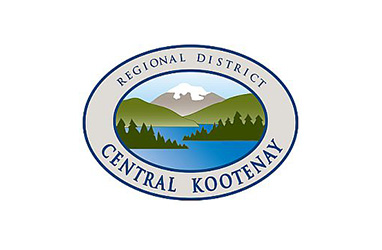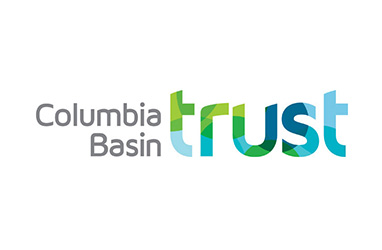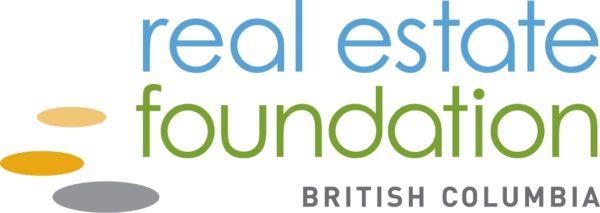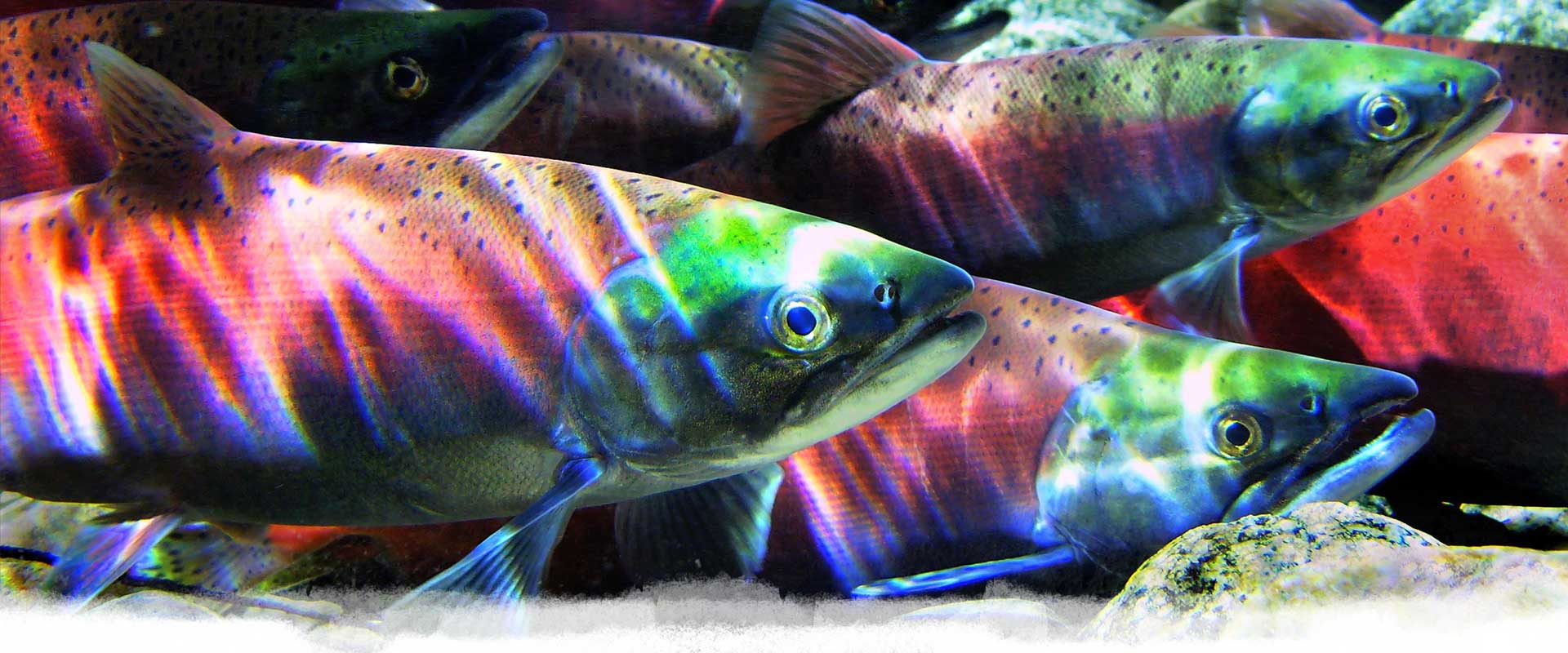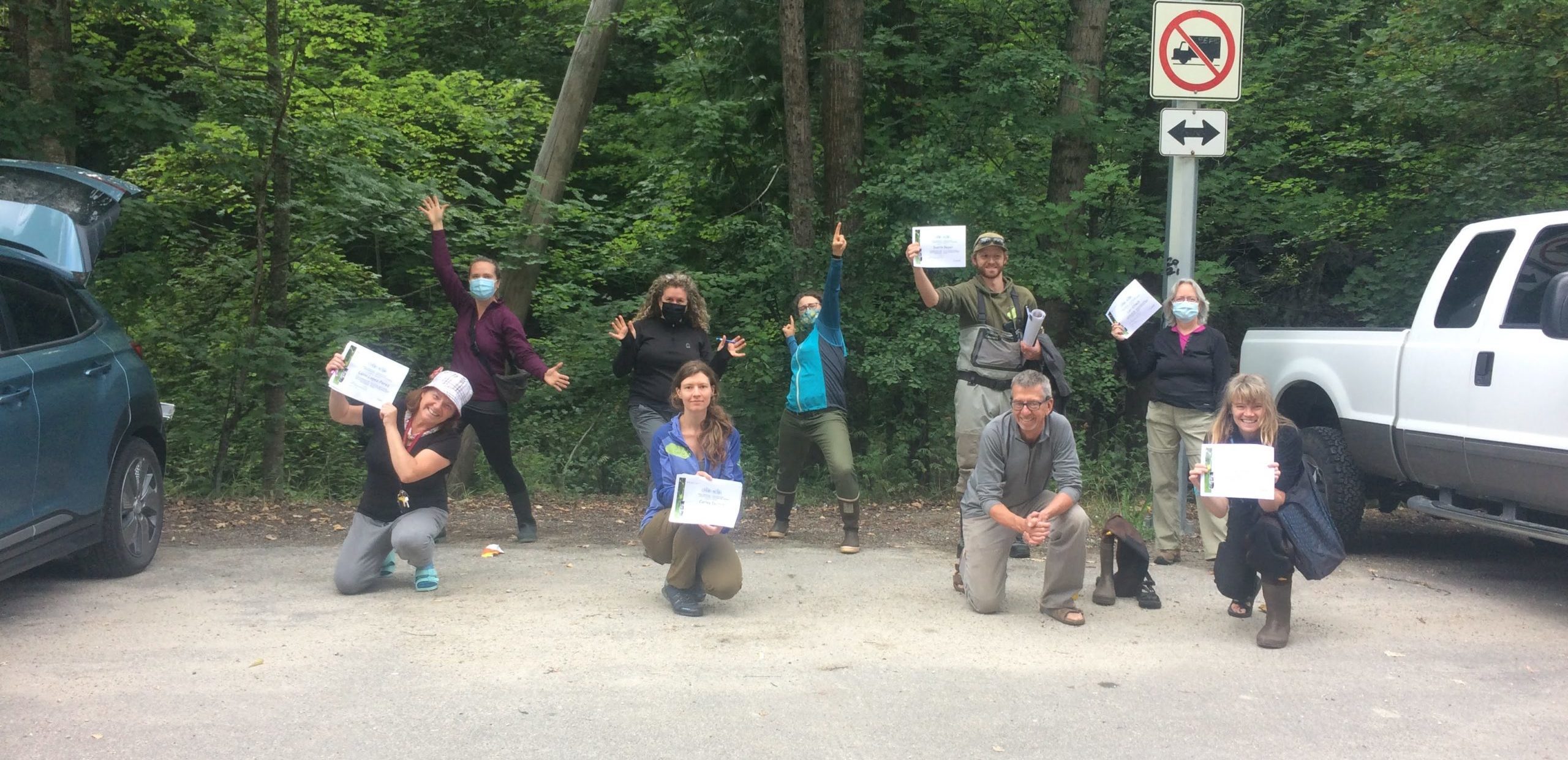
02 Nov Another Successful Year of Volunteers Monitoring Local Creeks
Thanks to our wonderful sponsors and incredible volunteers, we recently wrapped up another successful year of Watershed Monitoring. This program utilizes the Canadian Aquatic Biomonitoring Inventory Network (CABIN) national water quality monitoring protocol to assess water quality through the collection and analysis of macroinvertebrate aquatic insect populations. Through this program, we offer free annual CABIN training to interested community members. Trained volunteers are then invited to attend monitoring trips. This program creates a network of informed citizens and increases our capacity to monitor our watershed.
On August 26th and 27th we held our training session. Instructors Allison Lutz and Doris Hausleitner trained 12 volunteers to monitor water quality using the CABIN protocol. Volunteers included individuals who rely on surface water around Kootenay Lake for drinking and organizations such as CKISS, Wild Sight, and Creston Valley Wildlife Management Area. The volunteers learned how to determine stream health by measuring physical, chemical, and biological parameters. They also learned proper protocol, how to use sampling equipment, how to perform kick-net sampling, and how to properly package samples. By the end of the training, all volunteers became certified “Field Assistants.” Each volunteer had the opportunity to have additional (online) training to upgrade their certification to a “Field Technician” certification. All volunteers were then invited to join us on our monitoring expeditions.
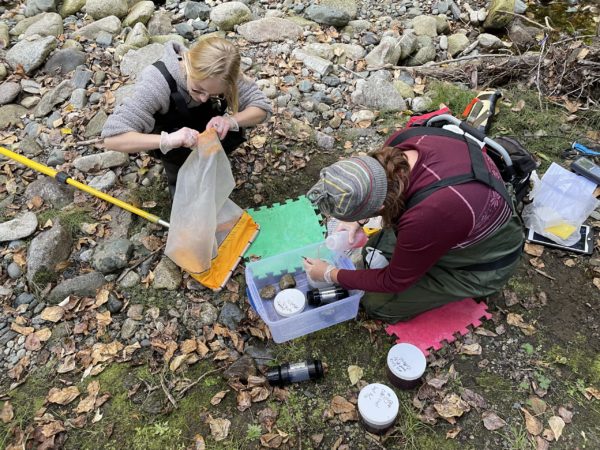
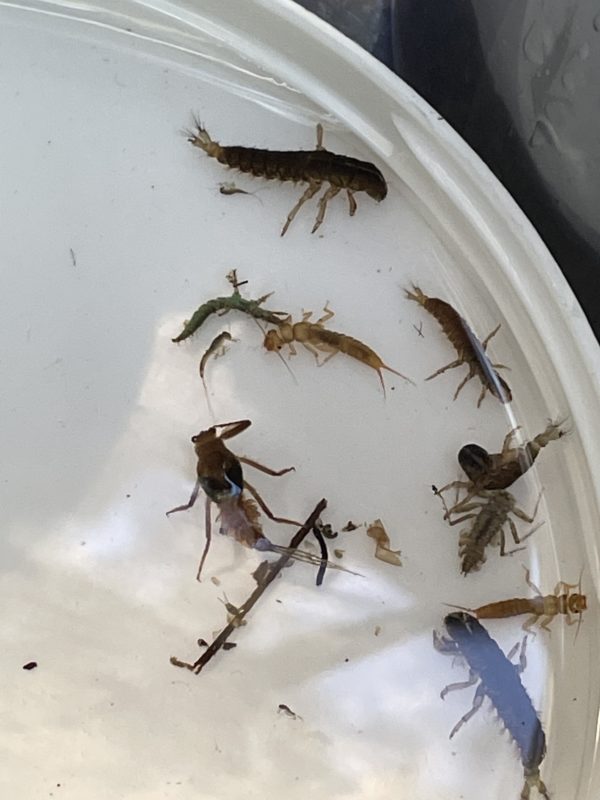
Photos (left to right): Staff member Kayla and volunteer Lucy identifying benthic invertebrates. Caddisfly larvae, Stonefly larvae, and Damselfly larvae.
Throughout the season, FOKLSS staff and 50% of our trained volunteers monitored a total of 10 creeks: Duhamel Creek, Kokanee Creek, Redfish Creek, Cottonwood Creek, Laird Creek, Eagle Creek, Fortynine Creek, Glade Creek, Falls Creek, and Slater Creek. We chose these creeks because they influence the overall health of Kootenay Lake. They are creeks that have all experienced impacts such as logging, mining, road building, and residential development. They also have many households that have a water license for these creeks and depend on them for their drinking water. Through the benthic kick and sweep method, volunteers found lots of mayflies, stoneflies, and caddisflies.
The CABIN training provides volunteers with the opportunity to become a certified field technician and practice their new learned skills during real-world monitoring endeavors. Volunteers not only can add this certification to their resumes, but can become citizen scientists with FOKLSS and monitor a number of streams and creeks with our staff. They can also apply their knowledge and skills to their own organizations and monitor water sources in their backyard. FOKLSS offers equipment for certified and interested individuals to pursue their own CABIN projects.
To learn more about our Watershed Monitoring Program click here.
If you are interested in CABIN training next year, become a FOKLSS volunteer. Sign up here.
A special thanks to our sponsors:

